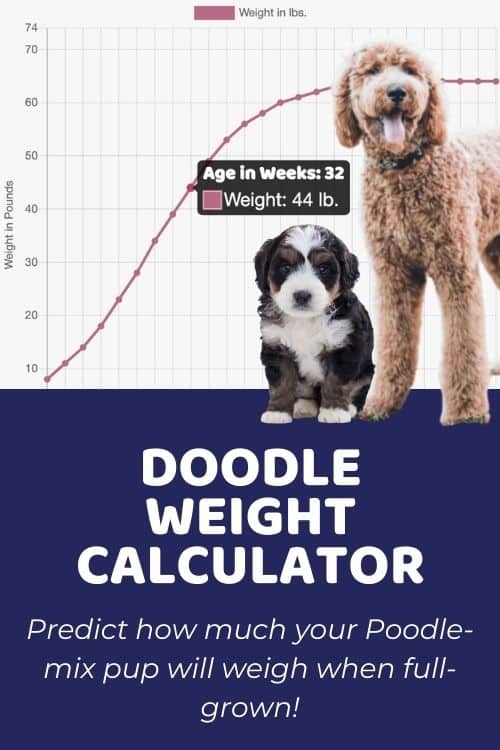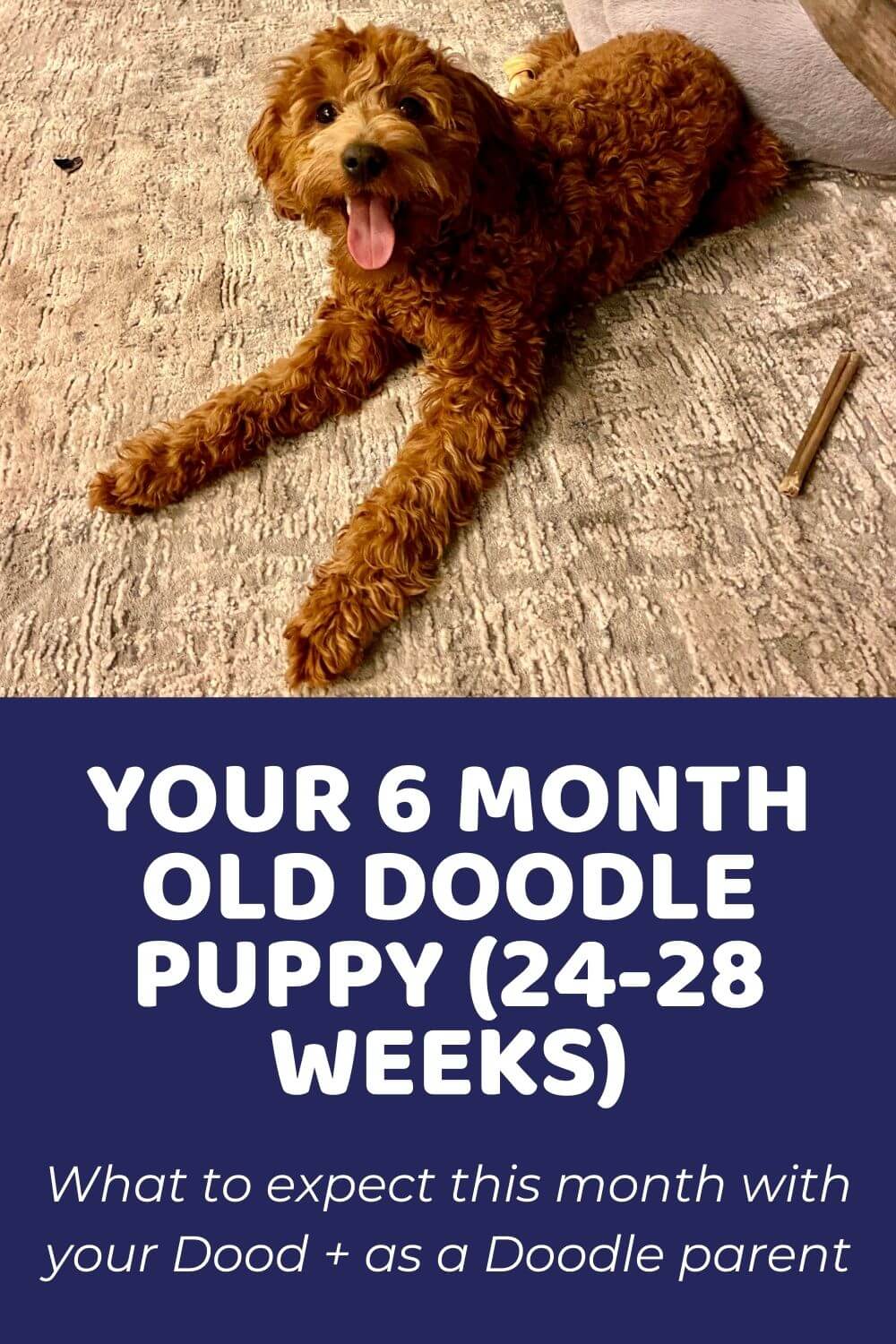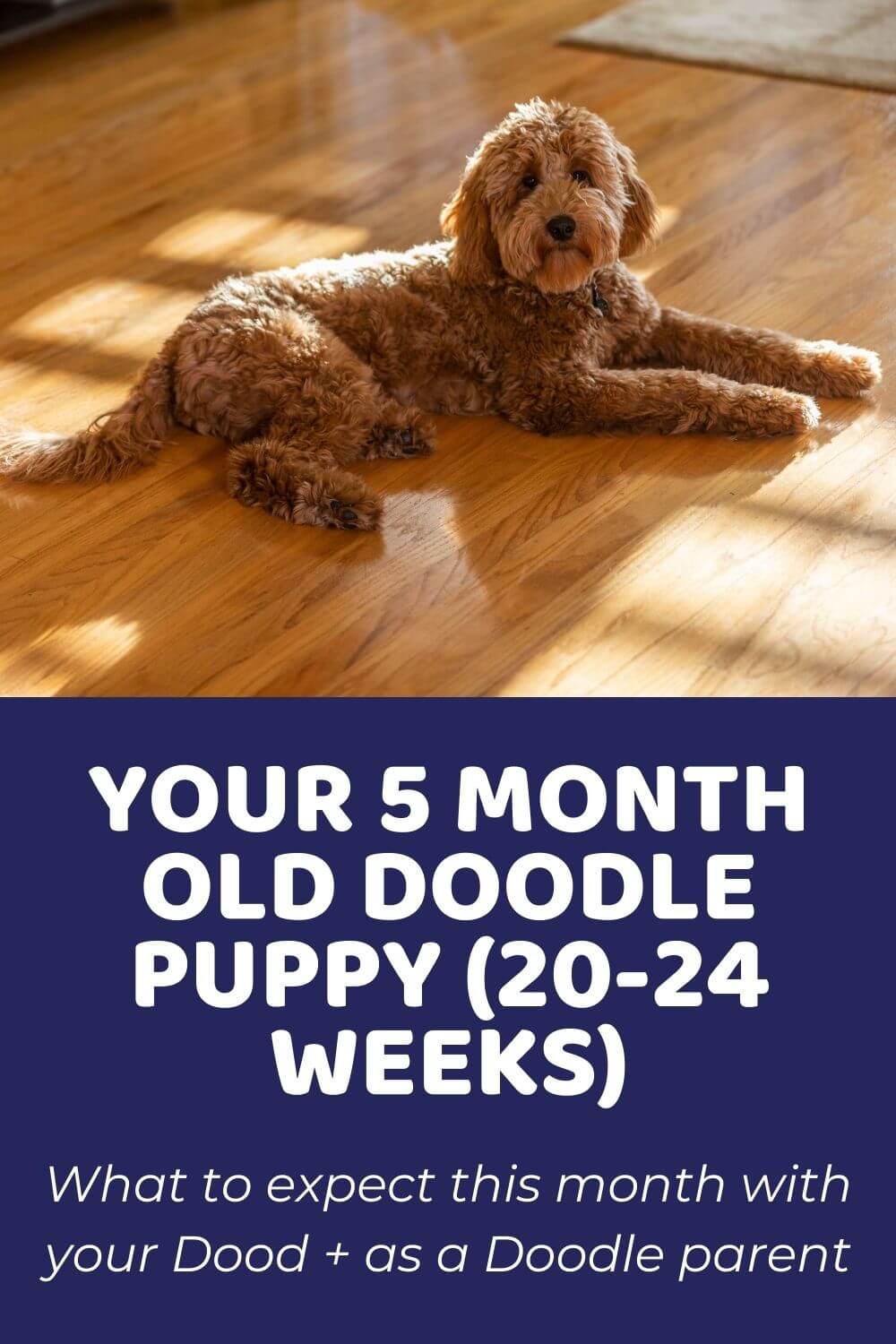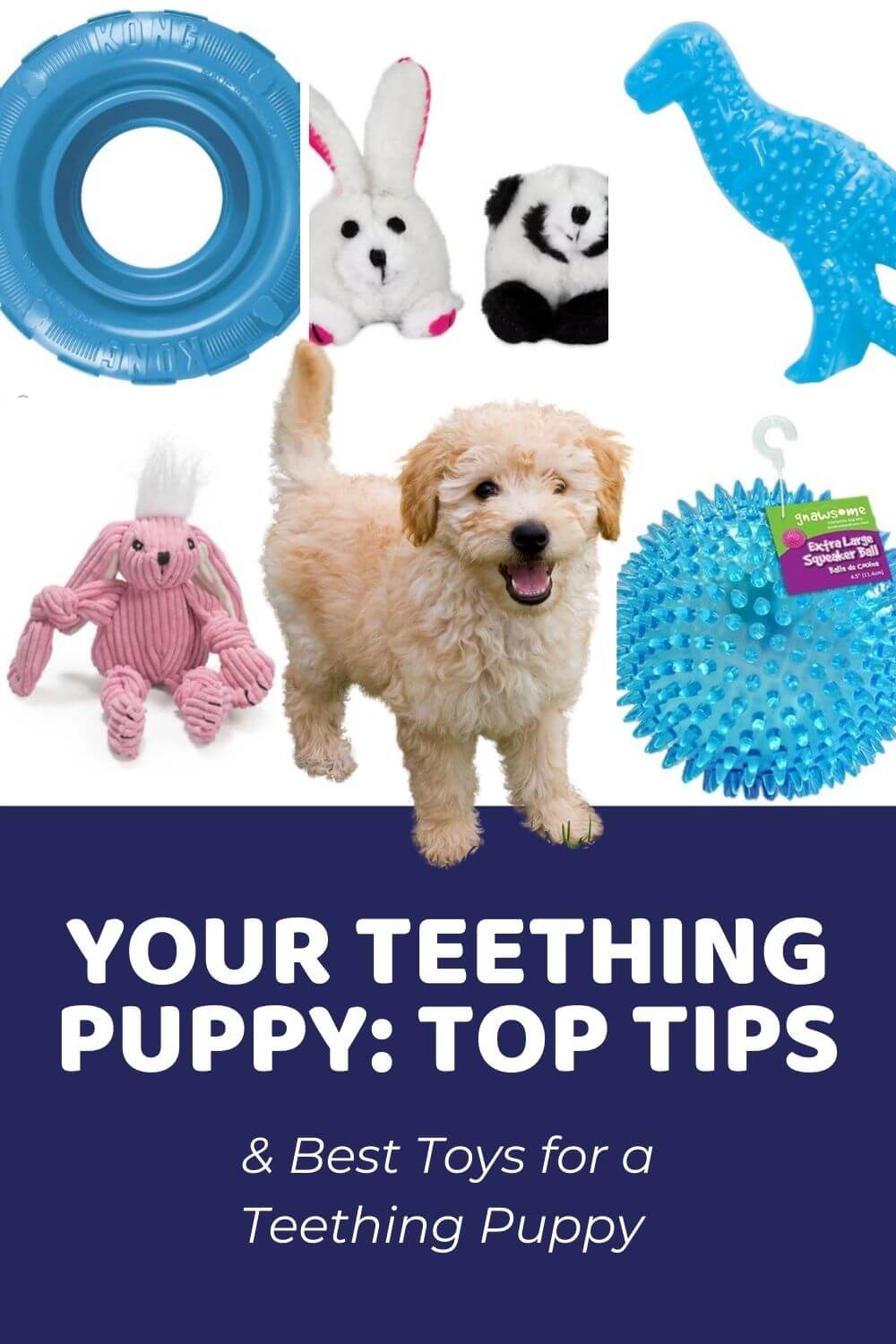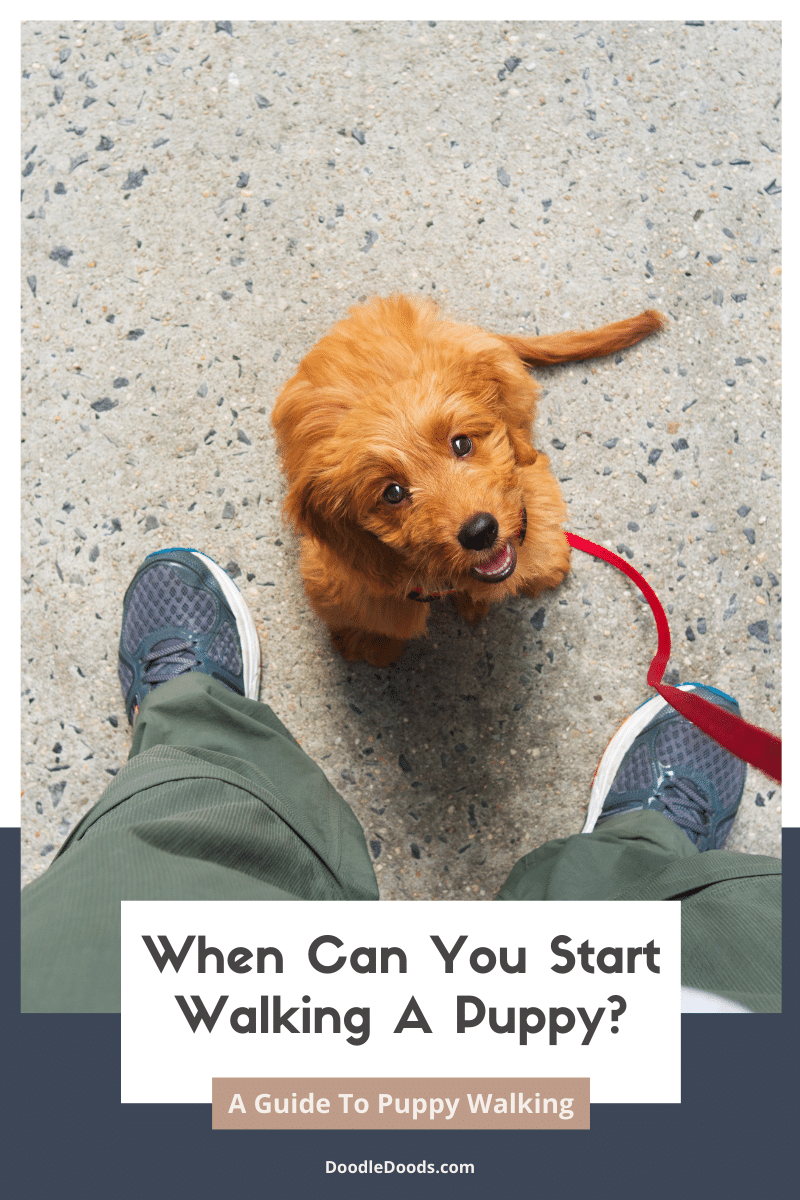Doodle puppies, like their adult counterparts, are wonderful. If you’re waiting for a newborn puppy to bring home, here’s how your puppy is developing in their first month after being born.
So your Doodle puppy was born! Woohoo! You can now begin counting down the days until they get to come home with you.
In the meantime, it might interest you to learn what is happening with your Dood developmentally. Physically and behaviorally, your Dood is going through a LOT. They grow and change daily at this stage, which means there’s a lot to keep up with!
We’re walking you through all their major (and minor) milestones of their first month so you can keep up with how your puppy is growing in preparation to come to their new home. To make it easier to follow, we’ve divided this list into two main categories: physical development and behavioral development. Let’s dive into physical development first.
Table of Contents
Learn How to Care for Your Doodle Puppy!
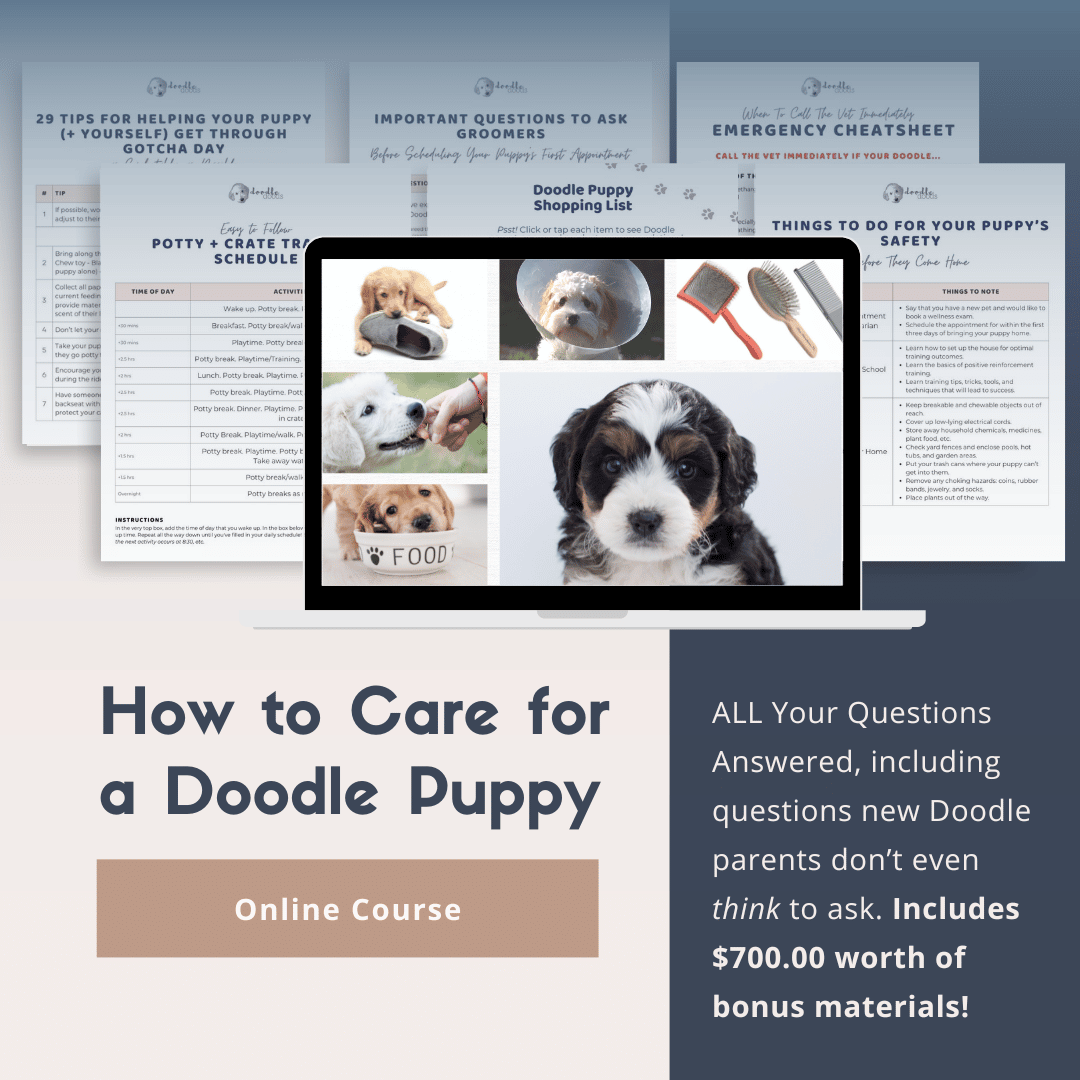
Perfect for first-time Doodle parents, get ALL your questions answered, including questions new Doodle parents don’t even think to ask.
Plus, get $700 worth of Bonus Materials for FREE, including:- Doodle Parenthood Community and Support Group ($190 value)
- Doodle Puppy Growth Tracker ($20 value)
- EMERGENCY Cheatsheet: When To Call The Vet Immediately ($50 value)
- HELP! Button ($145 value)
- And SO MUCH MORE!
Newborn Puppy Physical Development
A newborn puppy changes dramatically just in their first 4 weeks of life. Knowing all of these changes that your puppy is going through will help make waiting to bring them home just a little easier.
Neonatal Period (0 To 2 Weeks)
This newborn period is a CRUCIAL time in your newborn puppy’s development. Puppies are born nearly helpless: neurologically immature, blind, and deaf. They depend on their mama for everything. Here’s how a puppy will change in just their first two weeks of life.

Week 1
- Your newborn puppy can touch and taste at birth, but that’s really about it.
- They were born covered in fur.
- They cannot regulate their own body temperature and therefore need their mama to keep warm.
- At birth their eyes and ears are closed, so they cannot see or hear.
- Only their front feet are strong, allowing them to pull themself towards mama. they aren’t able to support their body weight to stand up.
- They spend most of their time sleeping or suckling. In fact, they will spend about 10% of their day eating and 90% sleeping to continue developing.
- Their brain activity will be almost identical whether they’re awake or asleep.
- Most of the time they won’t make any sound. The exception to that is the tiny squeaky noises they’ll make when they’re cold.
- If your newborn puppy’s tail is going to be docked, their procedure will take place in the first two to three days.
- All of their sleeping is helping them to grow very quickly. By ten days old, they will double their birth weight!
Week 2
- During week 2, Puppy’s eyes will start to open, though they probably still won’t be able to see very much. One eye may open before the other.
- In week 2, they will also add another 5-10% to their body weight.
- Your newborn puppy’s forelegs will get noticeably stronger.
- By the end of week 2, the breeder will begin to handle Puppy more and get them used to human contact (which has been shown to also help speed up neurological development).
- The breeder will also deworm them for the first time.
Transitional Period (2 To 4 Weeks)
Now your puppy will begin to develop a little more independence and won’t be quite so reliant on their mama.
Week 3
- Puppy’s eyes open up and their vision will improve to the point where they start to respond to movement and light!
- They can stand and sit up. By the end of this week, they’ll be able to take their first wobbly steps and walk.
- Puppy’s sense of smell and hearing develops. They’ll start to respond to sounds and will probably show a startle reflex to loud sounds.
- They can wag their tail.
- They will be able to better regulate their body temperature.
- By the end of this period, Puppy will cut all their milk teeth. The front teeth, canines, and incisors will be the first to appear. To prepare for weaning, they’ll start eating puppy food now.
- Your newborn puppy will start experimenting with making dog sounds and may even start to bark.
Week 4
- They will have become really active and strong on their legs.
- They can see very well now.
- By the end of this period, Puppy should be able to go potty independently and will use their new strong legs to move away from the sleeping area to go potty.
- They will start cutting their back teeth.
- They may start trying to climb out of the whelping box.
- The breeder will deworm them for the second time.
Newborn Puppy Behavioral Development
Your newborn puppy will go through tremendous physical changes in the first month, but they’ll also make huge strides socially.
Weeks 1-2
- Your Doodle puppy will want to stay close to mama and will actively seek her anytime they’re separated.
- Your newborn puppy will require mama to lick their anogenital region to stimulate peeing and pooping.
Weeks 3-4
- Puppy will start learning some simple social skills, including tail wagging, growling, and pawing as they play and play-fight with their siblings.
- Your Doodle puppy will also learn coordination and the ranking process.
- They may start nipping to relieve discomfort from teething. Interactions with mama and siblings teach bite inhibition.
- They will learn appropriate submissive and attention-soliciting and attention-receptive behavior.
- Your (not so) newborn puppy will start to show signs of distress when separated from their siblings or if they wander too far away from the litter nest.
- They will gain confidence and learn appropriate social behavior with other dogs.
- They will grow in independence gradually as they pass through the key puppy development stages.
- Dood also begins to develop and show their personality.
Wow! That’s a lot of growing and changing to do in just 4 weeks! And if you think that’s a lot, check out what happens in their second month.
If you want to start preparing for bringing your (not so) newborn puppy home, check out our Doodle Puppy Checklist!
Why It’s Helpful To Know About Your Newborn Puppy’s Developmental Changes
Every puppy goes through several milestones on their journey from newborn to full grown adult. We’re going through your puppy’s physical and behavioral development for the first year, breaking down all the changes they’re experiencing each month.
When you know what to expect, you can better understand what’s age-appropriate, know that your puppy is developing normally, and know that your puppy will “grow out of” some of their more challenging behaviors.


